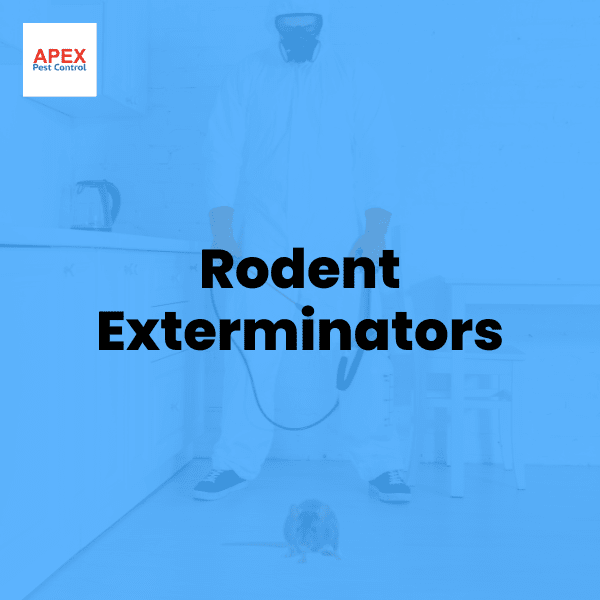Rat Control: The Essential Guide to Professional Rodent Exterminators Services
Rats and other rodents pose significant threats to both health and property, necessitating effective rodent control solutions. Professional rodent exterminators are crucial in managing these pest problems through proficient pest management and eradication strategies. This comprehensive guide delves into the world of exterminators, their pivotal role, and the cutting-edge techniques they employ to safeguard our homes and communities from rodent infestations.
For professional pest management please see rat control services for safe and successful rodent management at home or workplace.
The Role of Exterminators in Rodent Management
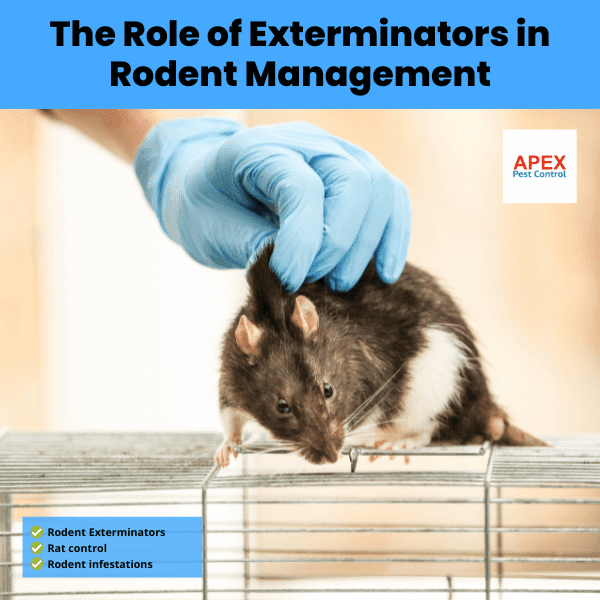
Let’s start with a basic understanding of who an exterminator is. An exterminator is a professional who specialises in eliminating pests and vermin from buildings and other structures. They are trained individuals equipped with the knowledge, tools, and techniques to handle different types of pests effectively.
Diving into their duties and responsibilities, exterminators inspect residential or commercial premises for signs of infestation. This includes rodent detection, pest identification, and understanding their dietary patterns and breeding capabilities. Once they gather this critical information, they devise strategies on how to control or eliminate these unwelcome guests while ensuring safety protocols.
Understanding the Expertise Required
Exterminators undergo rigorous training and certification processes. Their expertise in rodent extermination is not just in application but also in understanding pest behaviours, such as defence strategies and aggression behaviour. This enables them to tailor solutions effectively, which is essential for effective rodent prevention and providing lasting rodent solutions.
The Importance of Rodent Exterminators in Pest Eradication
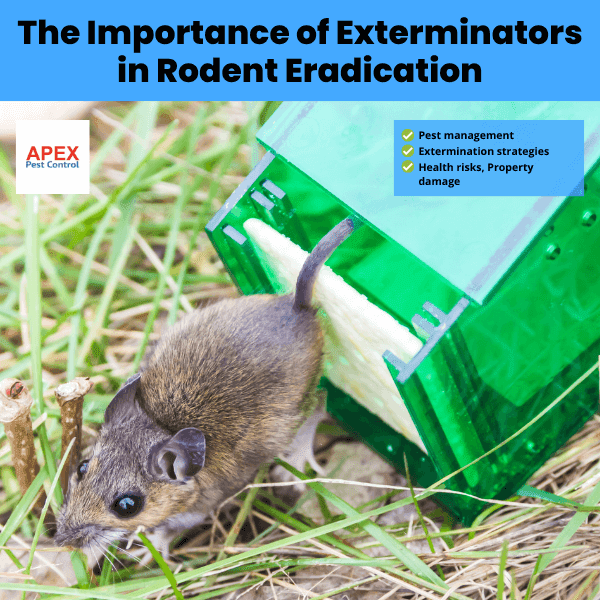
Rodents pose significant health risks as carriers of diseases harmful to humans. Diseases carried by rodents include Hantavirus and other rodent-borne illnesses, which are among the serious health concerns that exterminators help mitigate. Rodent infestations also lead to pest-related diseases and contamination signs such as rodent droppings, which require careful handling.
Property damage caused by rodents is another concern. Termites, for instance, alone cost homeowners billions annually, and similarly, rats, with their gnawing habits, can pose significant rodent threats to infrastructure. Exterminators play a crucial role here by utilising advanced pest control methods designed specifically based on identified pest behaviour patterns.
The Process of Rodent Extermination
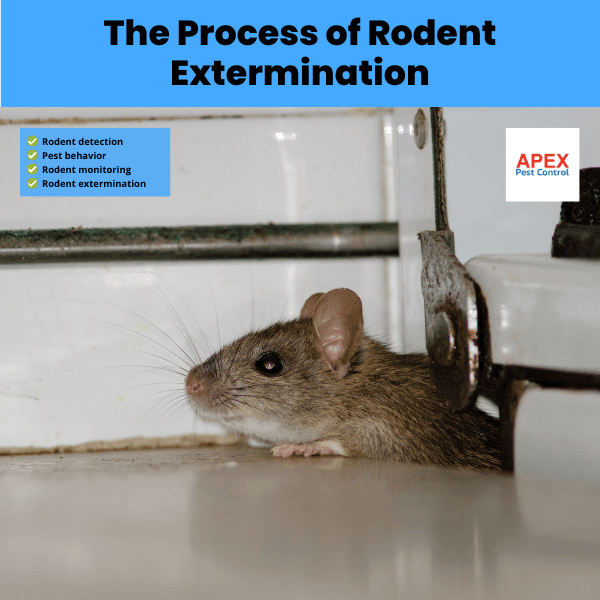
Extermination begins with rodent recognition during thorough inspections, where professionals identify pests, such as rodents, present within the structure based on evidence such as droppings identification, pest waste, and other contamination signs. They assess the level of infestation to determine which treatment method would be most effective given the rodent issues at hand. This is followed by the development and execution of a tailored plan to address rodent problems. Lastly, follow-up maintenance ensures pest removal is complete with no chance for recurrence.
Key Steps in Effective Extermination
- Thorough Inspection: A meticulous walkthrough for rodent detection and lifecycle stages assessment.
- Assessment and Planning: Developing a customised action plan, considering the infestation control level and environmental factors.
- Treatment Application: Utilising chemical or non-chemical methods for efficient rodent solutions tailored to specific species identification.
- Monitoring and Follow-up: Ensuring rodent eradication has been successful and implementing preventive measures to get rid of rodents permanently.
Types of Pests Exterminators Deal With
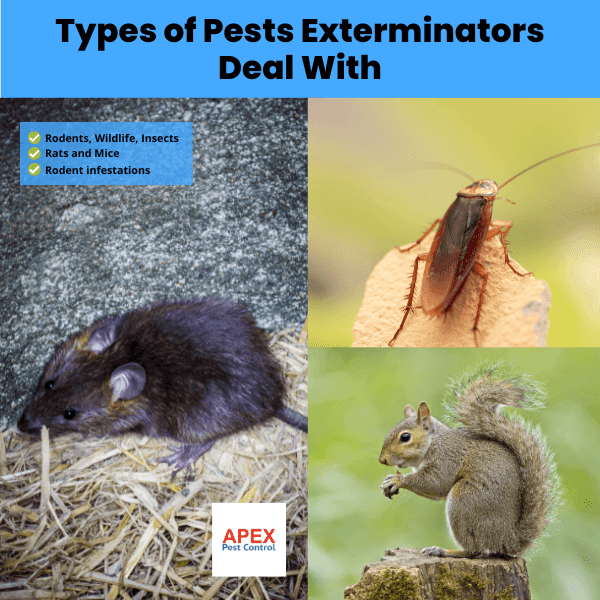
Insects
Ants, cockroaches, and bed bugs are common invaders, causing nuisances if left uncontrolled and requiring pest services tailored to pest-related diseases.
Rodents
Rodents like rats and mice cause extensive damage due to gnawing and their reproductive potential, spreading diseases and contaminating food sources.
Wildlife
Creatures such as racoons and squirrels pose their own unique challenges, requiring specialised removal techniques by pest professionals.
Tools and Techniques Used by Rodent Exterminators
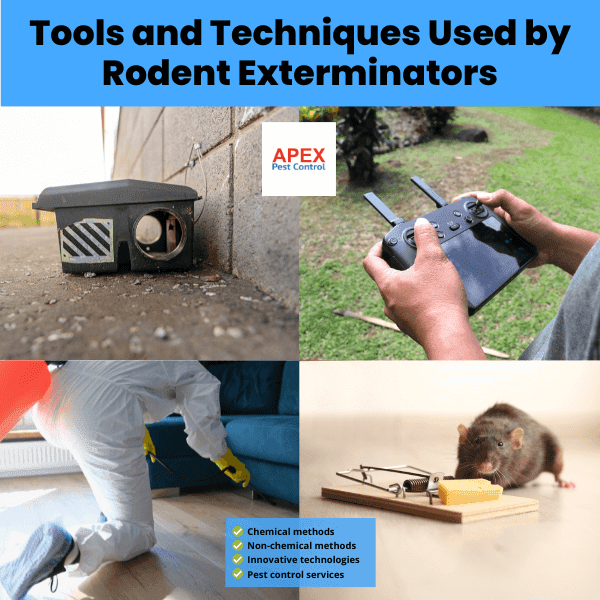
Chemical Methods
This involves using pesticides, insecticides, rodenticides, and other toxic substances for rodent extermination. Though effective, it is crucial these methods are applied safely under guidance from pest professionals.
Non-Chemical Methods
These include trapping, exclusion, and mechanical devices preferred for their lower environmental impact and fewer health risks to humans and pets. Employing strategy-driven methods ensures defence mechanisms rodents use are effectively neutralised.
Innovative Technologies in Pest Control
Recent technological advancements, such as the use of drones for rodent detection and monitoring, alongside AI-powered species identification systems, are revolutionising pest management, improving both accuracy and efficiency in addressing rodent lifecycle and feeding behaviour issues.
Safety Measures in Rodent Extermination
Safety measures form a vital component of any rodent extermination process, ensuring the well-being during and post-treatment. Protective equipment, proper handling of chemicals, and post-treatment cleanup are a few safety measures pest professionals usually adopt, especially considering the disease risks and health dangers involved.
How to Choose a Reliable Rodent Exterminator

Checking credentials and certifications ensures you are dealing with a qualified professional who adheres to industry standards and practises. It’s important to look up reviews and testimonials from previous clients to assess the pest control provider’s reputation. Comparing pest control services and prices can help verify if the value matches the cost for effective rodent management.
The Future of Rodent Extermination
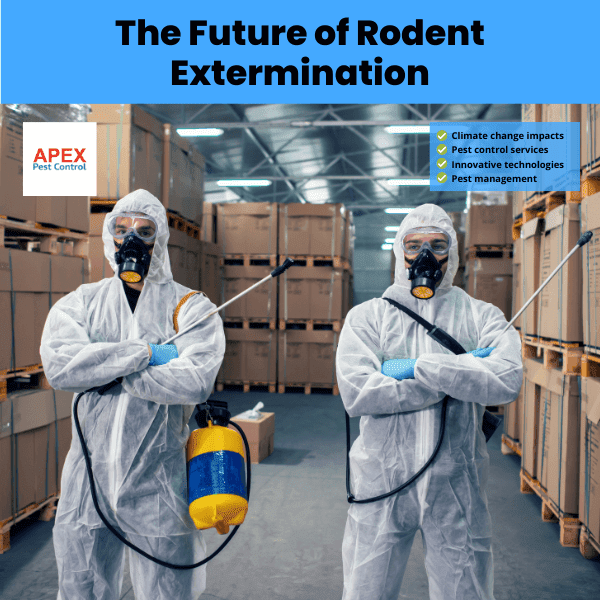
Technological advancements in pest control, along with climate change impacts on rodent lifecycles and species proliferation, are causing pest infestations to become more prevalent. This growth in rodent reproductive potential emphasises the continued need for skilled exterminators, capable of developing efficient rodent control solutions that adapt to these changes.
Conclusion
Rodent extermination is not just about convenience but a necessity to safeguard our health and property from rodent threats. As long as rodents pose a problem, the demand for professional exterminators to eliminate rodents will persist. It’s imperative that we remain informed and proactive against potential threats like rodents lurking within our environments because prevention is a better approach than cure.
Frequently Asked Questions
What do exterminators do?
Exterminators inspect premises for signs of pest infestation, identify the types of pests present, assess infestation levels, and devise a plan to eliminate rodents using chemical or non-chemical methods.
Why are exterminators important?
Exterminators mitigate health risks posed by rodents and pests. They also protect property from significant damage due to unchecked rodent activity.
How does one choose a reliable rodent exterminator?
Look for credentials and certifications. Read reviews and compare pest services among providers to ensure you receive effective rodent solutions.
What is the future outlook on rodent extermination?
The field will continue to evolve with technological advancements in pest control techniques. Climate change impacts highlight how pest management evolves in response, making exterminators critical for dealing with pest and rodent infestations.

Tony Johnson, Founder & Lead Technician at Apex Pest Control, is a BPCA and NPTA accredited pest management expert with over 35 years’ hands-on experience. Tony specialises in Integrated Pest Management and ensures all services comply with UK pest legislation, including the Wildlife and Countryside Act 1981 and COSHH Regulations 2002. His commitment to continual learning and adapting to industry best practices means clients receive effective, safe solutions for pests affecting homes and businesses across South Yorkshire. Tony’s dedication to professional standards, ethical treatment methods, and local expertise has made him a trusted partner for pest control and prevention.
-
BPCA & NPTA accredited | CHAS certified
-
Committed to UK pest law compliance & safety
-
Focused on effective, ethical pest management for South Yorkshire

